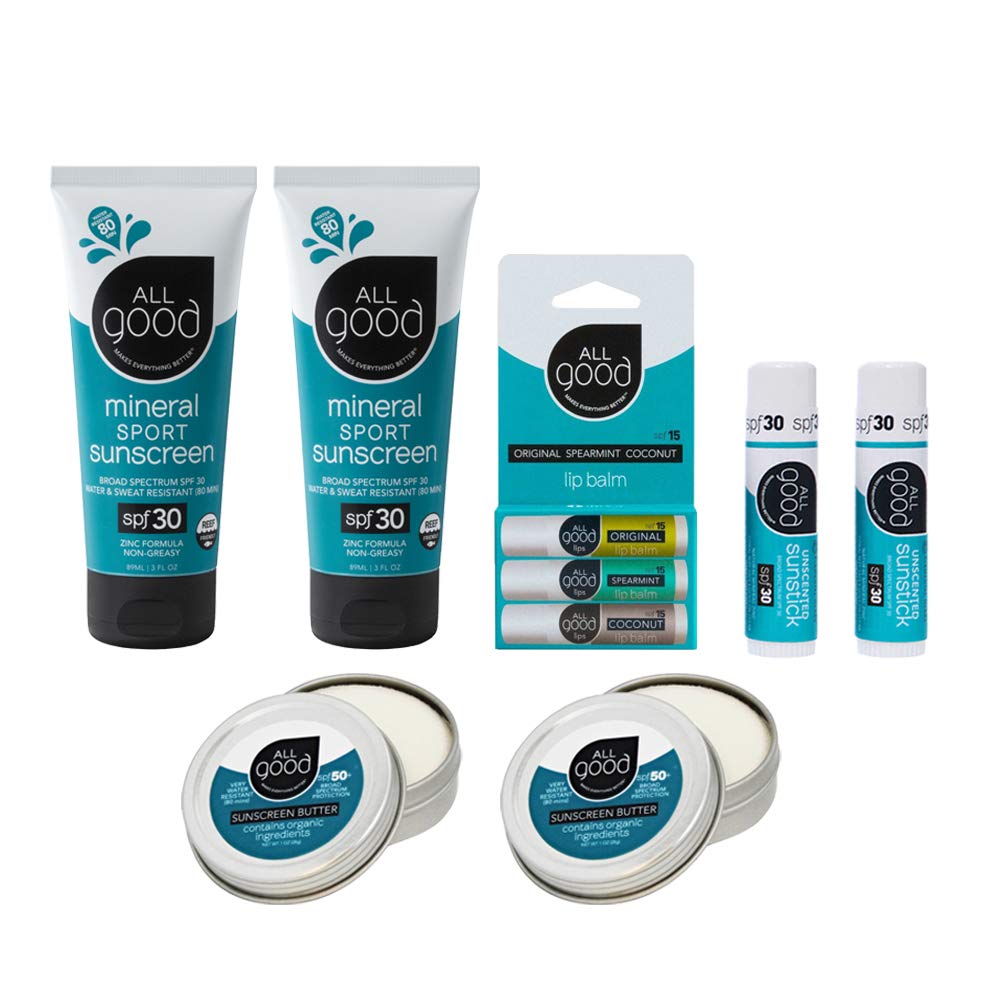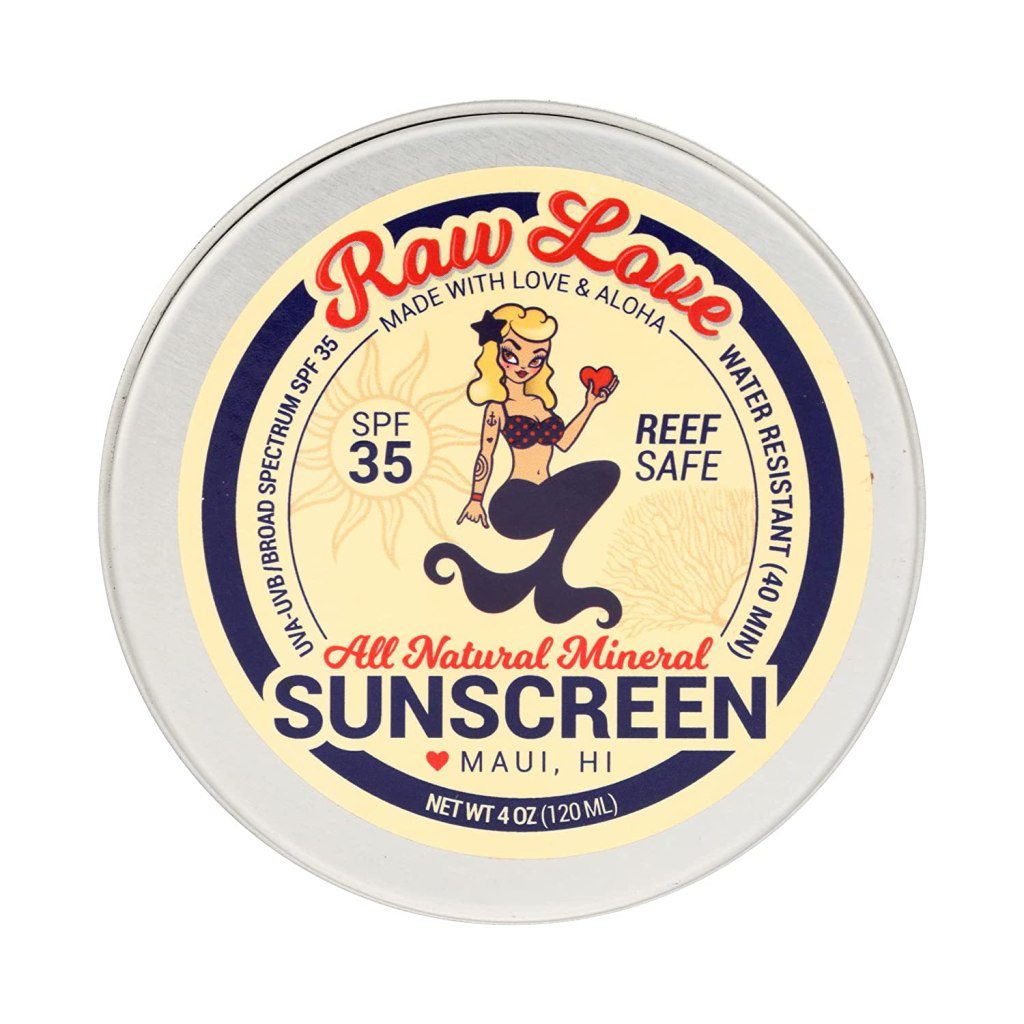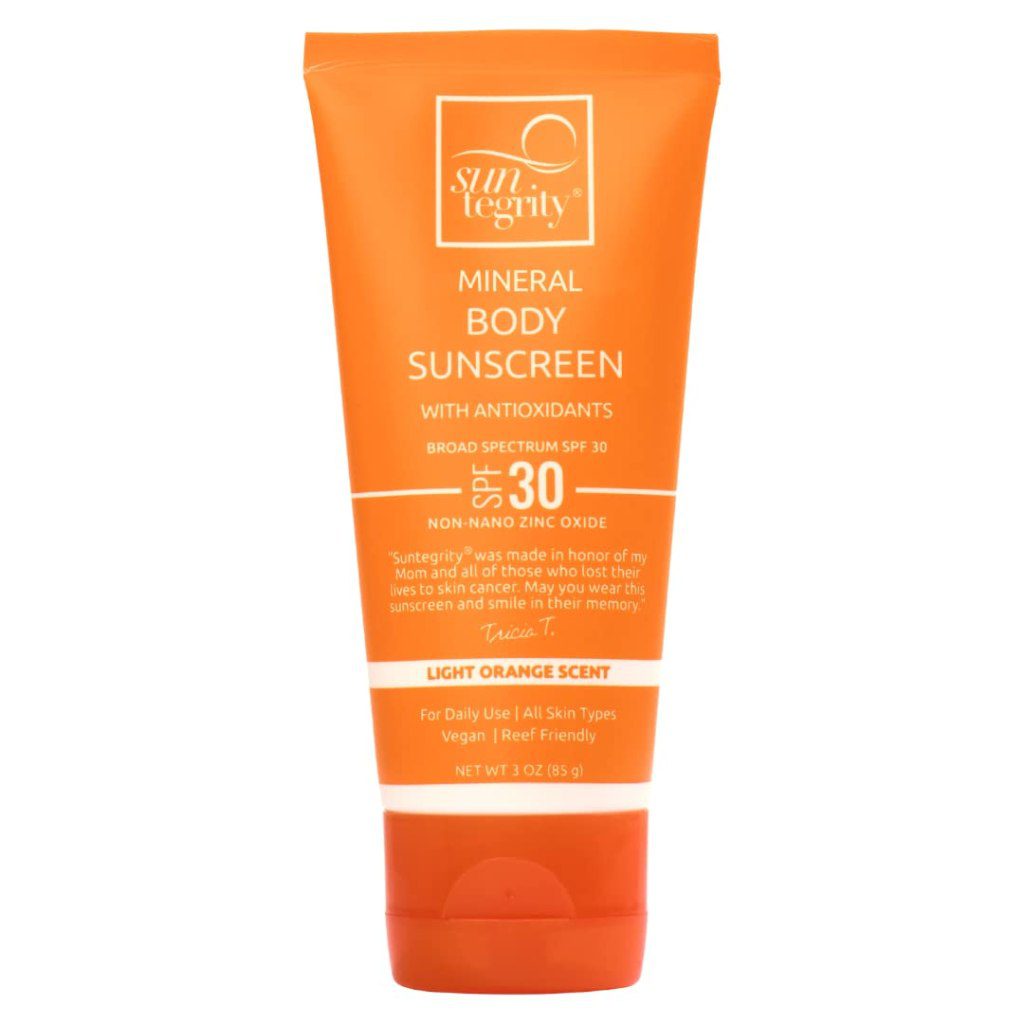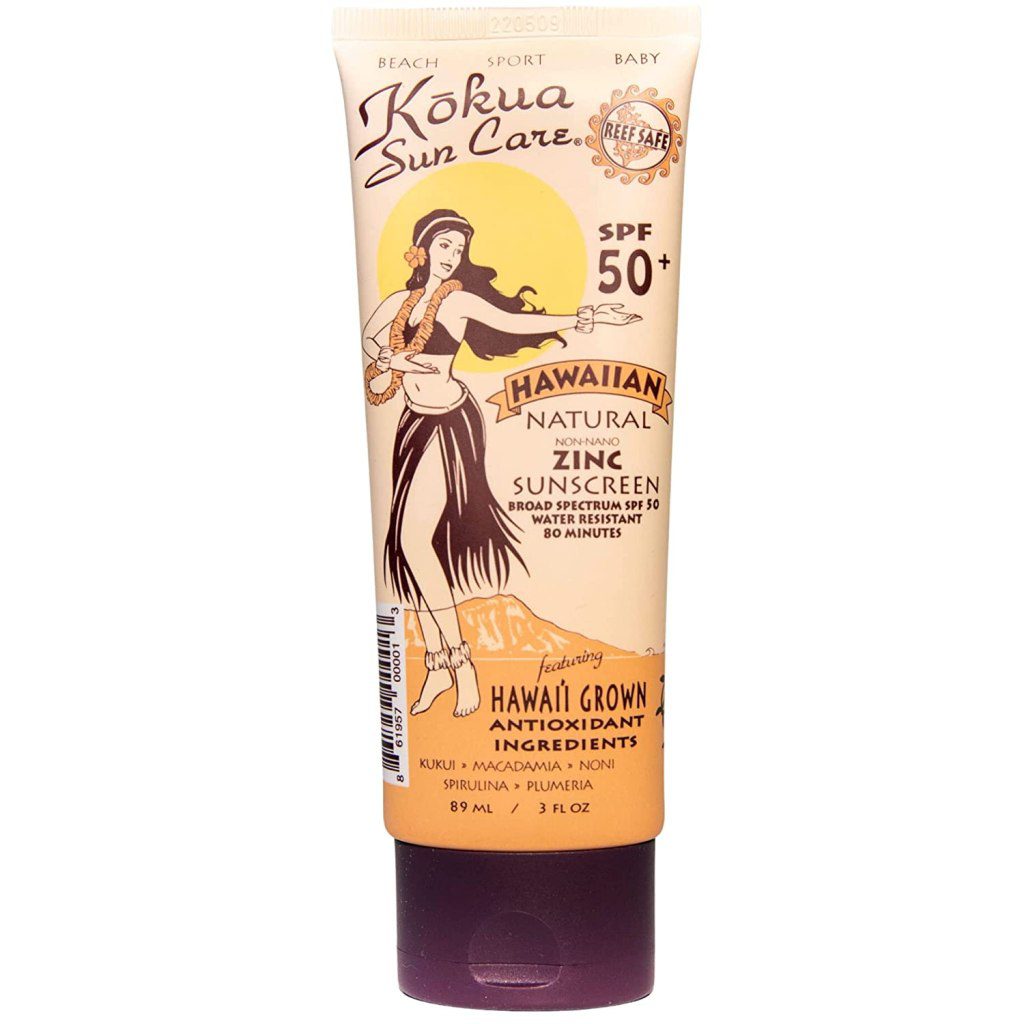Amazon
Most Sunscreens Harm Reefs and Wildlife — Use These Eco-Friendly Options Instead
If you purchase an independently reviewed product or service through a link on our website, Rolling Stone may receive an affiliate commission.
At a Glance: The Best Reef-Safe Sunscreens
Coral reefs are one of the most diverse ecosystems on the planet and their survival is inextricably linked to our own. They provide nesting grounds and homes for hundreds of species, prevent coastal erosion and storm surge damage, help mitigate climate change by regulating carbon dioxide levels in the ocean, and so much more. But, according to scientific research, they’re also being killed — and your sunscreen may be part of the problem.
“Sunscreen pollution is a real phenomenon and it poses a threat to coral reefs and aquatic life. It’s also a major factor in decreased water quality,” says Craig Downs, the study’s co-author and the executive director of Haereticus Environmental Laboratory.
Downs says the best course of action is to exchange sunscreen for protective clothing like hats, rash guards, and swim leggings that have broad-spectrum UV protection built into the fabric, but he understands that that isn’t always an option when you’re at the beach. If you’re going to use sunscreen, he says to always avoid oxybenzone and octinoxate at all costs. Those ingredients have been banned in many marine preserves, Palau, the Marshall Islands, the Virgin Islands, parts of Mexico, the Florida Keys, and Hawaii.
He also cautions that you should avoid sunscreen sprays as a good portion lands on the sand, affecting both animals that nest and live in the sand like turtles, and the ocean as the high tide sweeps it into the sea.
So which sunscreen should you buy and use? Here’s a full guide on finding the best reef-safe sunscreens that protect your skin and the environment.
In This Article
What Are the Best Reef-Safe Sunscreens?
Reef-Safe Sunscreen Buying Guide
How We Chose the Best Reef-Safe Sunscreens
What Are the Best Reef-Safe Sunscreens?
Want to swap out your toxic SPF? Here are some of the best eco-friendly sunscreens to help protect your skin all year long.
1. Stream2Sea Sport Sunscreen
BEST OVERALL
Stream 2 Sea earned the seal of approval from Downs and Haereticus, so you can feel good about dousing yourself with the water-resistant (up to 80 minutes), biodegradable, paraben-free broad-spectrum sunblock before diving into the deep end of the ocean. The active ingredient is non-nano titanium dioxide while green tea, tulsi leaf, seaweed, aloe, and coconut oil make the Sport line less harsh on your skin. Bonus points for using 100% recycled or recyclable packaging.
2. Badger Clear Zinc SPF 40
moisturizing
$15.29 $17.99 15% off
A pioneer in the eco-friendly mineral sunscreen market since 2005, Badger is a New Hampshire-based certified B Corporation that specializes in super-simple yet effective formulations that start with uncoated zinc oxide and end with high marks from the Environmental Working Group and on the Protect Land + Sea certification test. In between, you’ll find organic, non-GMO, gluten-free, and plant-based inactive ingredients like beeswax, jojoba, and other essential oils. Clear Zinc SPF 40 comes in a squeeze tube or eco-friendly tin. Borrow your children’s lotion, the SPF 40 Kids Sunscreen Cream, for the dreamy tangerine and vanilla notes.
3. All Good Sport Sunscreen
For SPORTS
An active member of the Safe Sunscreen Council and 1% For The Planet, All Good is a Morro Bay, California-based woman-founded and -run company. Their roll-on Sticks include non-nano zinc oxide, anti-fungal and anti-bacterial calendula grown on the company farm, buriti oil (antioxidant), shea butter, and coconut oil. Prior to any vacation, pick up an Ultimate Sun Care Set, which bundles together three SPF lip balms, two SPF 30 sunscreen lotions, two SPF 50 Zinc Sun Butters, and two Sun Sticks for your face, nose, and ears. They’re engineered to keep your skin safe — even through intense, sweaty activity, which is where some natural sunscreens can fail.
4. Raw Love All Natural Mineral Sunscreen
for sensitive skin
Motivated by her background in ocean conservation and marine biology and a desire to live plastic-free, Jenna Davis started whipping up non-nano zinc oxide, cold-pressed organic and plant-based SPF 35 in her Maui kitchen a few years ago. Then she started selling her rockabilly mermaid-repped batches at farmer’s markets and it took off because, as it turns out, many others were looking for reef-safe broad spectrum coverage that didn’t sting their eyes, went on smoothly, and was so gentle it could be used on babies. Its minty sinus-clearing scent and recyclable aluminum jars are added bonuses.
5. Suntegrity Skincare Natural Mineral Body Sunscreen
FULL BODY SUNSCREEN
After losing her mom to skin cancer, Tricia Trimble channeled her grief into founding Suntegrity in 2010 from her Southern California apartment to offer a slew of products, including SPF 50 mineral powders and Impeccable Skin Sunscreen Foundation. All Suntegrity sunscreens start with broad spectrum-busting non-nano zinc oxide and then receive infusions of youth-preserving antioxidants. It was important to her that they also be reef-safe, vegan (save for some serums and the heavy-duty Sport line that use beeswax), safe for sensitive skin, made in the USA, and cruelty-free. One of the brand’s hero products, the greaseless sweet orange-smelling SPF 30 Body Sunscreen, applies like lotion and is even a tad cooling thanks to jojoba, aloe, cucumber extract, and hyaluronic acid.
6. Kokua Sun Care Zinc Sunscreen SPF 50
for pale skin
This strong SPF 50 sunblock from Kokua contains 25 percent non-nano zinc oxide for 80 minutes of water resistance, a faint scent of coconut and vanilla, and 23 antioxidants to nourish the skin, including seven superfoods sourced from Hawaiian farms like Konared coffee fruit, macadamia nut oil, plumeria, spirulina, and noni juice, thus supporting local agricultural communities. Follow-up exposure with the brand’s Healing Serum. It makes use of sustainably harvested anti-inflammatory sandalwood (endemic to the Big Island) and kukui nut oil.
7. Elina Organics Sun Day SPF 35
BEST fragrance-free
This non-nano zinc oxide-powered SPF created by cosmetic chemist/celebrity esthetician Elina Fedotova goes on smoothly, is free of fragrance, is blended with botanical oils and vitamins, and starts working instantly. We also give Fedotova a slow clap for being one of many that urged consumers to stay out of the sun between 10 a.m. and 2 p.m. and throw on protective clothing and accessories in the directions section.
8. Earth Mama Organics Uber-Sensitive Sunscreen
BEST FOR KIDS
Trying to protect any kids’ skin? You might want to give Earth Mama’s SPF 40 Uber-Sensitive Mineral Sunscreen Lotion a swirl before your next beach outing. It was created for kids and tested by pediatricians, but the rash-calming ingredients and effects have no age limits. Thanks to relying on the force of zinc oxide to fight off the UVAs and UVBs and leaving artificial fragrances, parabens, nanoparticles, and chemical sunscreens in some other guy’s lab, Uber scored the lowest hazard rating the Environmental Working Group hands out. We’re also fans of the company’s tinted Lady Face sticks. They’re a triple threat: zinc SPF 40 sunscreen, softener (because of the shea and cocoa butter), and sheer foundation/primer that imparts a dewy look when used solo. It comes in two shades and, depending on your complexion, can be used as a makeshift bronzer, concealer, or contour.
9. Babo Botanicals Zinc Sunscreen
affordable pick
Free of oxybenzone, octinoxate, or parabens, this non-nano zinc sunscreen from Babo Botanicals is safe for both you and the reefs. Natural ingredients like sunflower seed oil, avocado, and jojoba lead the non-greasy formula, ensuring a smooth, easy application — even on sensitive skin. Although it’s gentle, Babo’s sunscreen is quite robust with SPF 30 protection and water and sweat resistance for up to 80 minutes. We recommend it for use on the body, although it should work on faces too in case you forgot your face sunscreen.
Reef-Safe Sunscreen Shopping Guide
Some companies actively try to hide, confuse, or play loose with the unregulated term “reef-friendly.” A reef-safe label has more legal ramifications, and companies often have to substantiate those marketing claims. Laws like Hawaii’s and retailers like REI, which stopped carrying oxybenzone-laden sunscreens in 2020, are helping by getting products off shelves, but the onus is usually on the consumer to become an educated label reader.
Make Sure It’s Oxybenzone- and Octinoxate-Free: And just like at the grocery store, a minimal number of ingredients that sound like they were brewed in a lab is a good rule of thumb to abide by. First and foremost, say no to the Os — oxybenzone, which is also called benzophenone-3 and BP-3, and octinoxate.
Avoid Other Chemicals, Parabens, and Nano-Particles: To level up your commitment to conservation, make sure sunscreens, toiletries, and cosmetics don’t contain petrolatum/mineral oil as it takes years to biodegrade and is known to be harmful to aquatic life and waterfowl, really high titanium dioxide levels, or anything on Downs’ HEL List including parabens, microplastic spheres or beads, nano-particles (as they are small enough to be consumed by coral), or para-aminobenzoic acid (PABA). Trusted third-party certifications like the seals awarded by 1% For The Planet or Downs’ strict Protect Land + Sea will also help narrow the field.
Try Mineral Sunblocks: The good news is that more companies are creating eco-conscious products than ever before, and at all price points, so doing the least harm while playing outside requires minimal effort. Generally speaking, non-nano mineral sunblocks are the way to go. They are less harmful all around and just as effective according to many dermatologists. As they’re made to sit on the skin and physically block UV rays, they take a little extra elbow grease to rub in and should be reapplied every two hours.
How We Chose the Best Reef Safe Sunscreens
To make this list, we researched dozens of sunscreens using the above criteria for a truly “reef-safe” sunscreen. We also consulted an expert (Craig Downs, mentioned at the top of this article) for his suggestions, and tested out a couple of the sunscreens ourselves. After choosing some good options, we combed through customer reviews to make sure that most users were pleased. The final list here only contains picks from trusted retailers (mostly Amazon) and all products have at least a 4/5-star average customer rating.








